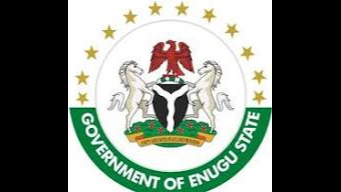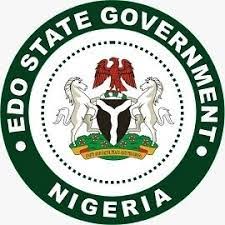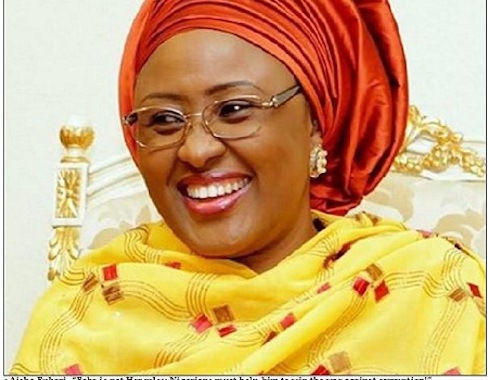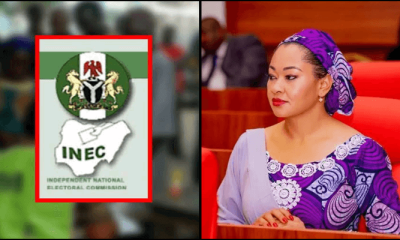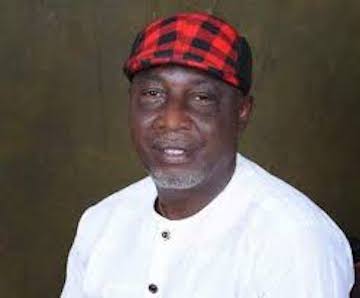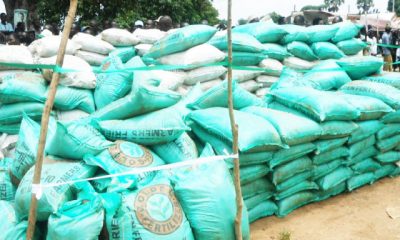COVER
Fix Public Finances to Promote Development, World Bank Urges Nigeria
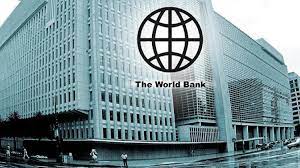
The World Bank has said that Nigeria needs to fix its public finances to promote inclusive and sustainable development.
This is contained in the World Bank Nigeria Public Finance Review Report released yesterday in Abuja.
A copy of the report was obtained from the World Bank’s website.
According to the report, macroeconomic and fiscal reforms are urgently needed to lift Nigeria’s development outcomes, which are severely constrained by inefficient use of resources.
“For years, a large share of Nigeria’s resources have financed inefficient and regressive subsidies for petrol, electricity, and foreign exchange.
“Not all these subsidies are accounted for in the budget, which makes them difficult to track and scrutinise.
“However, available data suggest that these subsidies, which accounted for more than the amount spent on education, health, and social protection in 2021, benefit primarily wealthy households.”
The statement said that these subsidies also distort incentives, discourage investment, and crowd-out spending on pro-poor programmes, thereby, hindering progress in Nigeria’s social development.
It said Nigeria had one of the lowest public expenditure and revenue levels in the world, undermining the government’s ability to improve service delivery.
“Between 2015 and 2021, total public spending in Nigeria averaged 12 per cent of Gross Domestic Product (GDP), less than half the world average of 30 per cent.”
The statement said improving service delivery in Nigeria required more resources.
“Therefore, one of the most critical aspects of meeting Nigeria’s vast development needs lies in raising more revenues, as the country ranks consistently among the world’s poorest-performing countries in terms of public revenue mobilisation.
“With total revenues averaging just seven per cent of GDP in 2015-2021, far below the global average of 24 per cent.”
It said low tax rates and poor utilisation of tax bases, weaknesses in tax administration, and large deductions from oil revenues were constraining Nigeria’s inability to generate enough revenues.
The statement quoted the World Bank Group President, David Malpass as saying “Nigeria’s government urgently needs to strengthen fiscal management and create a unified, stable market-based exchange rate”..
“The government also needs to phase out its costly, regressive fuel subsidy and rationalise preferential trade restrictions and tax exemptions.
“These would lay the groundwork for the increases in public revenues and spending needed to improve development outcomes.”
Malpass said decisive moves would significantly improve the business-enabling environment in Nigeria, attract foreign direct investment, and reduce inflation.
He said the World Bank was ready to increase support to Nigeria as it designs and implements these critical reforms.
The statement also quoted Nigeria’s Country Director, Shubham Chaudhuri as saying “Nigeria is at a critical historical juncture and has a choice to make.
“A child born in Nigeria today will be only 36 per cent as productive when she grows up as she could be if she had access to effective public education and health services, and has a life expectancy of only 55 years.”
Chaudhuri said these stark indicators illustrate the urgency for action by Nigeria’s policymakers to improve the macroeconomic and fiscal framework, to sustainably enhance the quality of spending and public services at federal and state levels.
The statement said the Nigeria Public Finance Review was conducted at the request of the Federal Ministry of Finance, Budget, and National Planning.
It said the report was prepared in close collaboration with the Budget Office of the Federation, the National Bureau of Statistics, (NBS), the Office of the Accountant-General of the Federation, and the Debt Management Office (DMO).
It aims to inform the public debate on Nigeria’s future by providing a thorough analysis of the fiscal performance and necessary reforms needed to establish a robust and sustainable development model.
The aim is to providesp broad-based economic opportunities for all Nigerians. (NAN)
COVER
FG, States, LGCs Share N1.818trn June Revenue
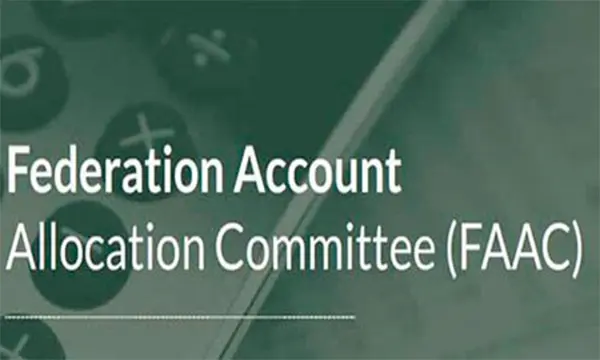
By Tony Obiechina Abuja
A total sum of N1.818 trillion, being June 2025 Federation Account Revenue, has been shared to the Federal Government, States and the Local Government Councils.The revenue was shared at the July 2025 Federation Account Allocation Committee (FAAC) meeting held in Abuja, in a statement by Bawa Mokwa Director of Press and Public relations in the Office of the Account General of the AGF during the weekend.
The N1. 818 trillion total distributable revenue comprised distributable statutory revenue of N1.018 trillion, distributable Value Added Tax (VAT) revenue of N631.507 billion, Electronic Money Transfer Levy (EMTL) revenue of N29.165 billion, Exchange Difference revenue of N38.849 billion and N100 billion Augmentation from Non-Mineral revenue.A communiqué issued by the Federation Account Allocation Committee (FAAC) indicated that total gross revenue of N4.232 trillion was available in the month of June 2025. Total deduction for cost of collection was N162.786 billion while total transfers, interventions, refunds and savings was N2.251 trillion.According to the communiqué, gross statutory revenue of N3.485 trillion was received for the month of June 2025. This was higher than the sum of N2.094 trillion received in the month of May 2025 by N1.390 trillion.Gross revenue of N678.165 billion was available from the Value Added Tax (VAT) in June 2025. This was lower than the N742.820 billion available in the month of May 2025 by N64.655 billion. The communiqué stated that from the N1.818 trillion total distributable revenue, the Federal Government received total sum of N645.383 billion and the State Governments received total sum of N607.417 billion.The Local government Council received N444.853 billion, while the sum of N120.759 billion (13% of mineral revenue) was shared to the benefiting State as derivation revenue.On the N1.018 trllion distributable statutory revenue, the communiqué stated that the Federal Government received N474.455 billion and the State Governments received N240.650 billion.The Local Government Councils received N185.531 billion and the sum of N118.256 billion (13% of mineral revenue) was shared to the benefiting States as derivation revenue.From the N631.507 billion distributable Value Added Tax (VAT) revenue, the Federal Government received N94.726 billion, the State Governments received N315.754 billion and the Local Government Councils received N221.027 billion.A total sum of N4.375 billion was received by the Federal Government from the N29.165 billion Electronic Money Transfer Levy (EMTL). The State Governments received N14.582 billion and the Local Government Councils received N10.208 billion.From the N38.849 billion Exchange Difference revenue, the communiqué stated that the Federal Government received N19.147 billion and the State Governments received N9.712 billion.The Local Government Councils received N7.487 billion, while the sum of N2.503 billion (13% of mineral revenue) was shared to the benefiting States as derivation revenue.The communique stated that the Federal Government received a total sum of N52.680 billion, the State Governments received N26,720 billion and the Local Government Councils received N20.600 billion from the N100 billion Augmentation.In June 2025, Companies Income Tax (CIT), Petroleum Profit Tax(PPT), Electronic Money Transfer Levy(EMTL) increased significantly while Oil and Gas Royalty, Value Added Tax( VAT), Import Duty, Excise Duty and CET Levies decreased considerably.COVER
Senate, Natasha Thread Words over Resumption as Court Ends Suspension

By Eze Okechukwu, Abuja
The Senate has warned suspended Kogi lawmaker, Senator Natasha Akpoti-Uduaghan to desist from forcefully resuming her legislative duties on Tuesday until the expiration of her suspension.Chairman of the Senate Committee on Media and Public Affairs, Senator Yemi Adaramodu gave the warning in a statement issued on Sunday.
While insisting that no valid court order mandates her immediate recall, Adaramodu emphasised that the Senate remains committed to due process and the rule of law. He said, “The Senate of the Federal Republic of Nigeria wishes to reaffirm, for the third time, that there is no subsisting court order mandating the Senate to recall Senator Natasha Akpoti-Uduaghan before the expiration of her suspension.”The clarification followed media reports quoting the embattled lawmaker as saying she would return to the Senate on Tuesday, allegedly based on a judgment by Justice Binta Nyako of the Federal High Court in Abuja.However, Adaramodu said the Senate had previously issued two public statements after the court ruling and the release of the Certified True Copy of the Enrolled Order, making it clear that no positive or mandatory directive was issued against the Senate regarding her recall.“Rather, the Honourable Court gave a non-binding advisory urging the Senate to consider amending its Standing Orders and reviewing the suspension, which it opined might be excessive.“The Court, however, explicitly held that the Senate did not breach any law or constitutional provision in imposing the disciplinary measure based on the Senator’s misconduct during plenary,” he said.The Senate further noted that the same court found Akpoti-Uduaghan guilty of contempt and imposed penalties, including a N5m fine payable to the Federal Government and a mandatory apology in two national newspapers and on her Facebook page, a directive that has reportedly not been complied with.“It is therefore surprising and legally untenable that Senator Akpoti-Uduaghan, while on appeal and having filed a motion for stay against the valid and binding orders made against her, is attempting to act upon an imaginary order of recall that does not exist,” the Senate spokesman added.He warned that any move by the suspended lawmaker to “storm the Senate next Tuesday under a false pretext” would be premature, disruptive, and a breach of legislative order.“The Senate will, at the appropriate time, consider the advisory opinion of the court on both amending the Standing Orders of the Senate, her recall, and communicate the same thereof to Senator Akpoti-Uduaghan.“Until then, she is respectfully advised to stay away from the Senate chambers and allow due process to run its full course,” the statement concluded.I’ll resume on Tuesday – Natasha Akpoti-Uduaghan Dares SenateSuspended Kogi Central Senator, Natasha Akpoti-Uduaghan, has vowed to resume her duties in the Senate on Tuesday.Akpoti-Uduaghan said her resumption was in line with a court decision.She disclosed this in a chat with journalists while in her constituency for a training programme on Saturday.The embattled lawmaker said the suspension limited her from performing her legislative duties.Natasha disclosed that she has officially informed the Senate in writing about her intentions to resume.She noted that despite the controversy surrounding the ruling of the Abuja Federal High Court, she will resume on Tuesday.“I have pretty much two months more before the six months expire. However, I have written to the Senate again telling them that I’m resuming on the 22nd, which is on Tuesday, by the special grace of God.“I will be there, because the court did make the decision on that,” she said.COVER
Dangote Refinery Targets 700,000bpd Capacity

By David Torough, Abuja
The Dangote Petroleum Refinery is undergoing a major capacity upgrade to increase its output from 650,000 to 700,000 barrels per day (bpd), according to Alhaji Aliko Dangote, President of the Dangote Group. The expansion, currently underway at the Lekki Free Zone in Lagos, is expected to be completed by the end of 2025.
Dangote, who spoke during a recent facility tour with stakeholders and journalists, explained that the upgrade is aimed at maximising the refinery’s potential, despite ongoing modifications slowing its ability to operate at full capacity this year. “As of July, our Residue Fluid Catalytic Cracking (RFCC) unit is running at 85 per cent capacity. Once modifications are complete, we expect to exceed the original design and hit 700,000bpd,” he said. The RFCC process converts heavy crude residue into valuable lighter fuels such as gasoline, diesel, and LPG.Dangote disclosed that the refinery sourced 19 million barrels of crude oil from the United States between June and July 2025 alone. “We bought 10 million barrels in July, which accounts for about 55 per cent of our current crude needs,” he said.He also reflected on the journey of building the $20 billion refinery, revealing it began after the late President Umaru Musa Yar’Adua halted his attempt to purchase Nigeria’s state-owned refineries in 2007.“Had I known the complexity and challenges involved, I might never have started. But we pushed through the setbacks, and today we’ve proved that nothing is impossible,” Dangote remarked.He further noted that most African nations are still dependent on imported refined fuels, with the exception of Algeria and Libya. “We needed to change that narrative. Only one refinery is currently operating in South Africa. So, we decided to take the risk,” he added.Dangote criticised what he described as “foreign sabotage through importation,” claiming some external forces use large volumes of imports to undermine domestic industries in Africa.In a related development, Nigeria has secured over $20 billion in new investment commitments from China to support key sectors of the economy, including agriculture, mining, steel, energy, and automotive manufacturing.Director General of the Nigeria-China Strategic Partnership (NCSP), Joseph Tegbe disclosed the breakthrough over the weekend, noting that the funding was the result of sustained bilateral engagements following the elevation of Nigeria-China ties to a Comprehensive Strategic Partnership.“These are real commitments, not just pledges,” Tegbe said. “We’re talking about tangible projects that will create jobs, boost local production, enhance food security, and make Nigeria a leading manufacturing hub in Africa.”Tegbe added that the NCSP is driving efforts to ensure the success of Forum on China-Africa Cooperation (FOCAC) projects in Nigeria, while also leveraging Chinese expertise and financing to reposition the country’s industrial base.The partnership also aims to open Asian markets to Nigerian-made goods, enhancing exports and creating value-added supply chains in line with President Bola Tinubu’s Renewed Hope Agenda.“We’re not only building bridges with investors; we’re delivering results that will transform Nigeria’s economy for generations to come,” Tegbe said.





